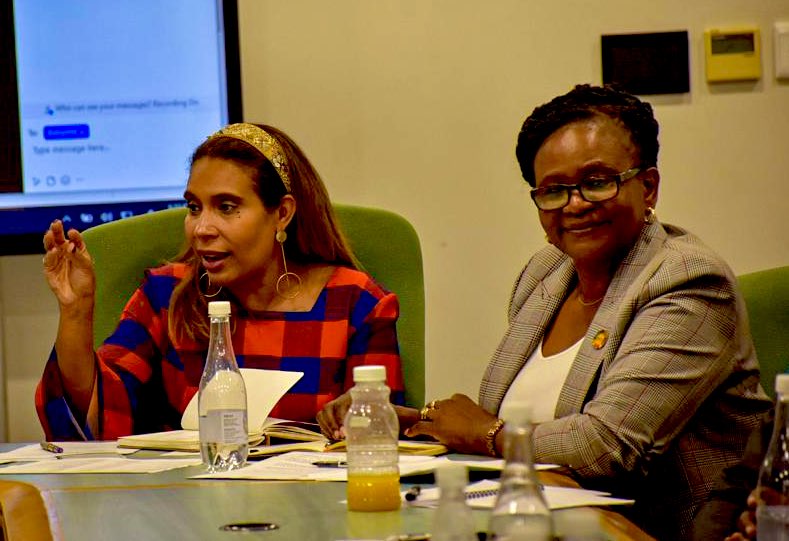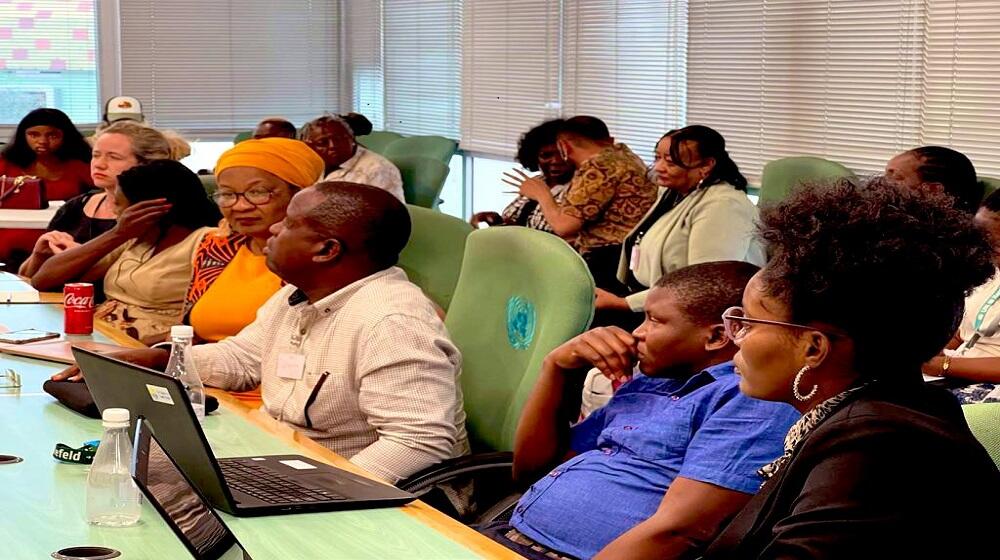WINDHOEK, Namibia ̶ On 21 April 2023, UNFPA facilitated a dialogue on advancing sexual and reproductive health rights (SRHR) in Namibia with the African Voices Project (headed by Brands On Mission), the Namibian Family Planning Association and other civil society organisations.
Experts and advocates from 26 organisations participated in the session to discuss opportunities for improving SRHR outcomes for women and girls as well as the challenges and gaps in the field.

In her opening remarks, Ms. Gift Malunga, UNFPA Namibia Representative, expressed her excitement to facilitate the conversation and gratitude that Namibia had been chosen as one of the nations to be involved in the initiative.
"I hope that this is just the beginning of many more interactions as we work to bring about transformative change for adolescent girls, women, and young people in Namibia."
Led by Professor Myriam Sidibe and Dr. Michel Sibide, former UNAIDS Executive Director, the African Voices Project hopes to play a key role in facilitating this critical coordination.
The African Voices project aligns with the Sustainable Development Goals (SDGs) and the African Union's (AU) Agenda 2063 by mobilising a diverse coalition of African Voices to promote enhanced sexual and reproductive rights and services throughout Sub-Saharan Africa.
The project's strategy revolves around advocacy efforts aimed at increasing education and access to SRHR throughout the continent, particularly in the three target countries of Namibia, Niger and Cabo Verde. By amplifying the voices of Africans, the project seeks to establish a framework for achieving the desired outcomes of increased SRHR awareness and a reduction in the stigma associated with abortion.
In her remarks Prof Sibide said she was honoured to speak from first-hand experiences, that she has seen and witnessed, making it easier to identify many gaps in various countries
Prof. Sibide reiterated the sentiments of Malunga, saying, "Together we can overcome the challenges and gaps in SRHR in Namibia and create a brighter future for all.
“I take pride to still actively visit different countries to date, while still serving as the Minister of Health and Social Affairs in Mali,” said Dr. Michel Sibide.
“I look forward to the tangible results to what we are planting in Namibia today, to start conversations that will live even long after we may no longer be around. May we all participate in such projects to ensure a better and safer future for our children,” he encouraged.
The discussions were fruitful, and a wide range of topics were covered, including the root causes of high rates of teenage pregnancy in Namibia.
The lack of after-school programmes, economic dependency among girls and young women, and the complex role of tradition, community, and cultural norms were all identified as contributing factors.
Another challenge that was highlighted was the absence of community-led initiatives and barriers to accessing SRHR services, particularly in rural areas.
It was noted that the issue is complicated, and no single solution can address all the underlying factors. The dialogue also touched on the restrictive Abortion and Sterilization Act inherited from apartheid that criminalises abortion unless certain conditions are met.
Collectively, the participants acknowledged the lack of a unified response from political leaders and the importance of data for evidence-based advocacy.
One of the main takeaways from the session was the importance of strong coordination and collaboration between existing SRHR service providers and civil society organisations. While much work is being done to improve SRHR outcomes, services and advocacy remains fragmented.


